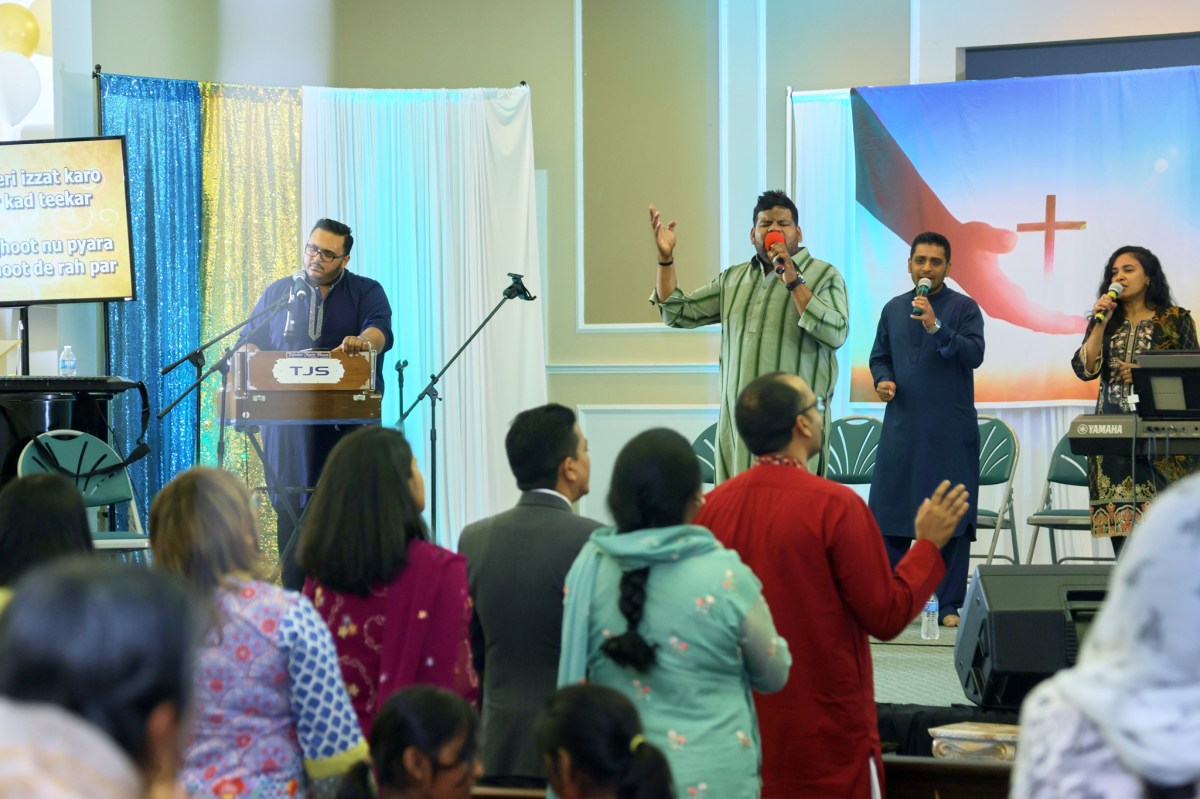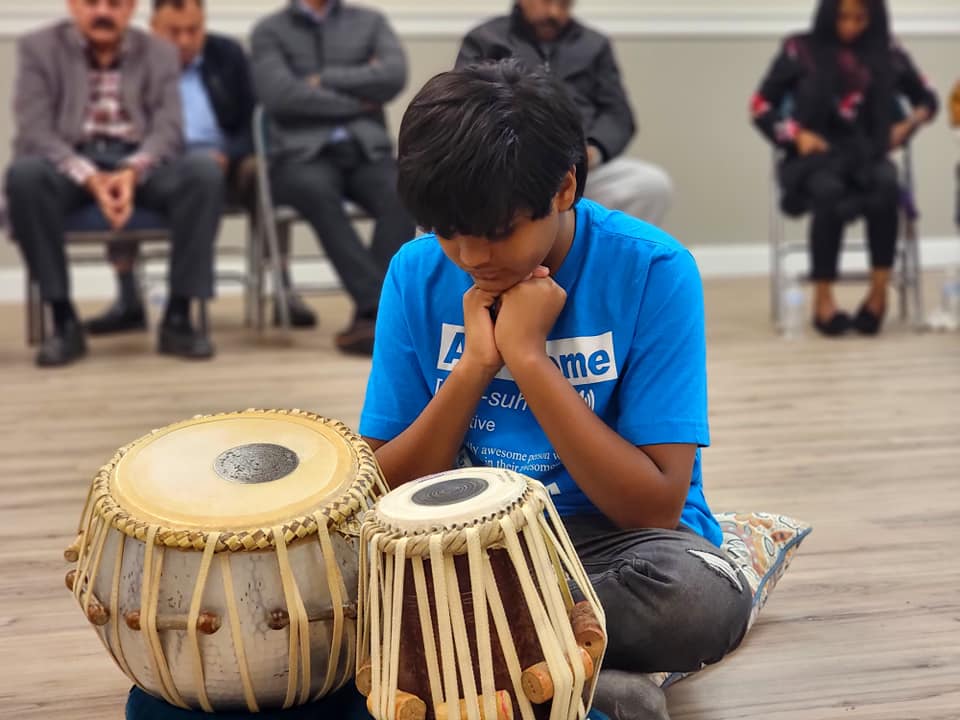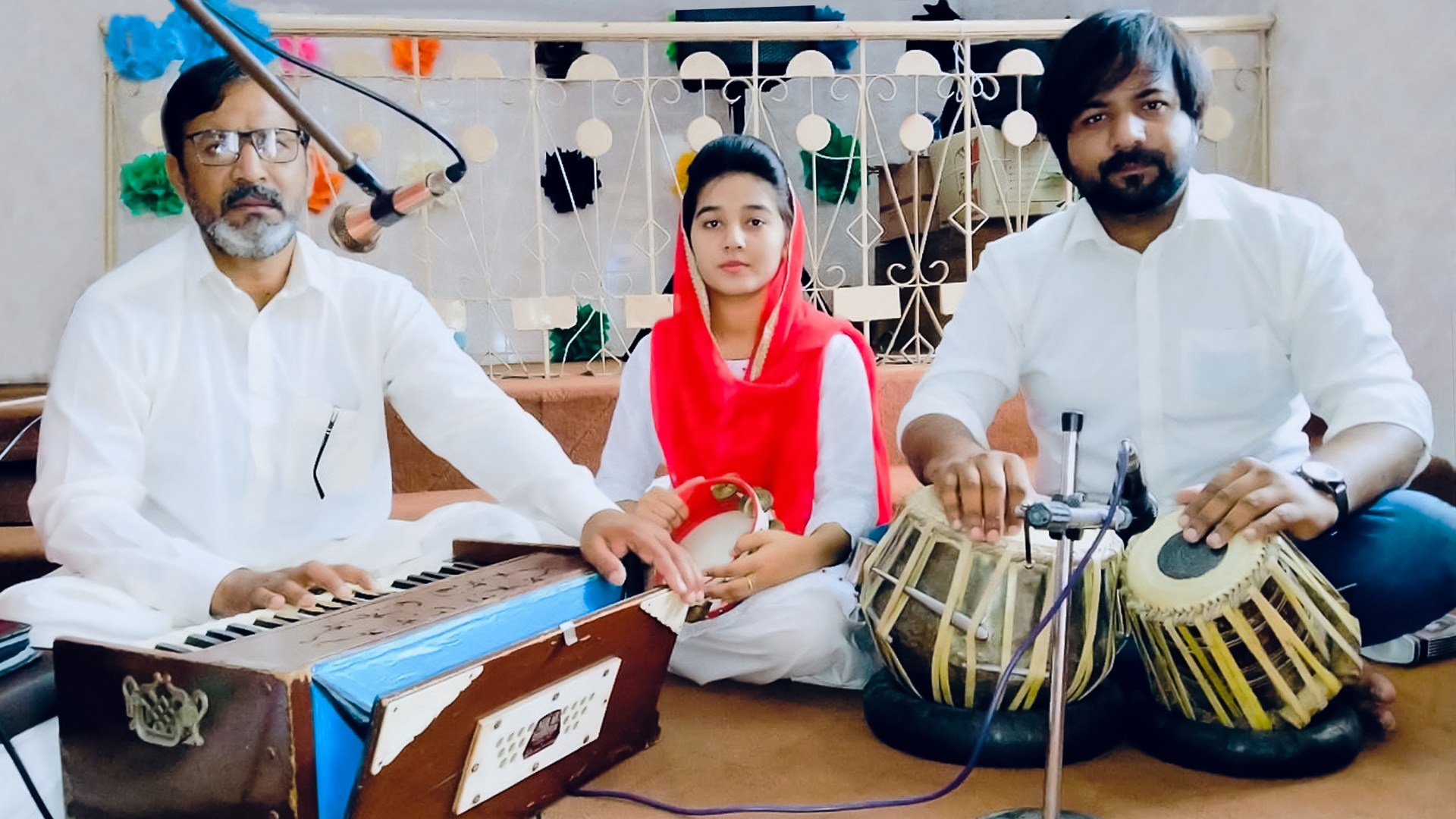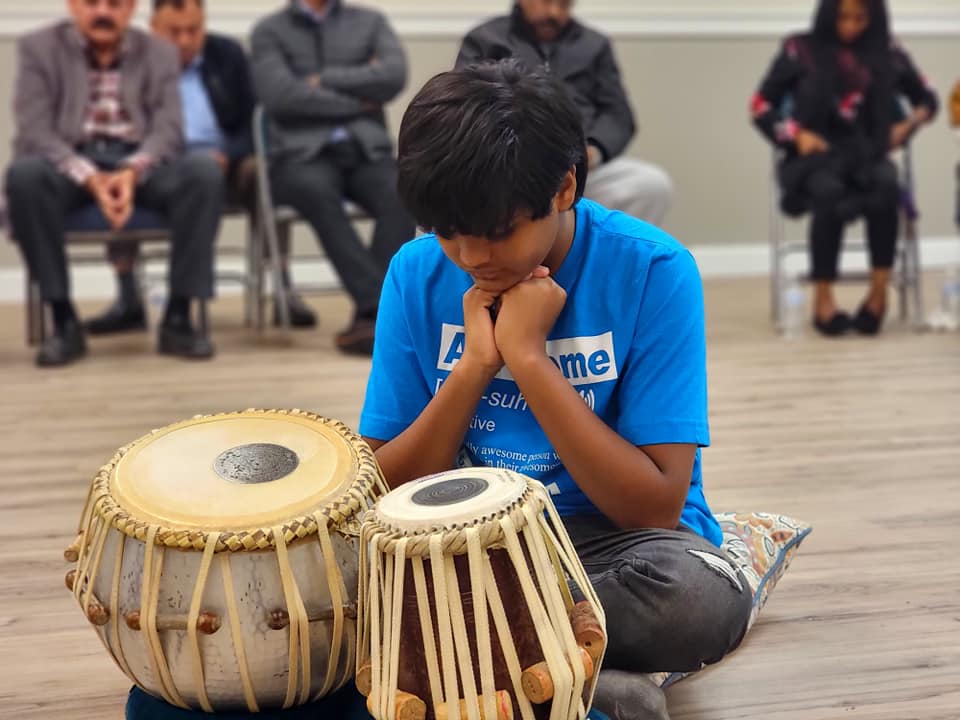As Christians observe the International Day of Prayer for the Persecuted Church (IDOP) this month, many will place high on their prayer list the nation of Pakistan, ranked the fifth most difficult place in the world to follow Jesus.
Yet amid the prejudice, discrimination, and persecution faced by believers there, many Pakistani Christians have a unique resource to draw upon at the heart of their worship: contextualized psalms.
A century ago, the Book of Psalms was translated into Pakistan’s predominant language, Punjabi, in versified form [see historical sidebar below]. Commonly referred to as the Punjabi Zabur, these poetic metrical songs can unequivocally be regarded as the most accustomed, read, sung, recited, and memorized part of Scripture by the body of Christ in Pakistan.
Corporate worship within Pakistani churches (which are overwhelmingly ethnically Punjabi) is considered incomplete if the Zabur are excluded. As the deepest expression of indigenous Christianity, they can rightly be viewed as the heart of Christian worship in Pakistan and have given its believers an unrivaled familiarity with the Book of Psalms.
As a child in Pakistan, I learned many of the psalms in Punjabi, my native language. Early in the morning, before we’d go to school or work, my father would sing them melodiously, and the tunes and beautiful words would bring unexplainable peace and comfort to my mind and heart. Our house faced the main mosque in the area, and the adhan, the daily call to prayer sung by the imam, was loud through the minaret speakers. However, as I listened to the Zabur from my father, the call to prayer would fade from my ears.
The Punjabi Psalms play a vital role in the church liturgies and the sociocultural gatherings of Pakistani Christians. Psalm 24 is the opening psalm at a church service, while Psalm 72 is normally sung at the end. Psalm 20 is regularly sung at funerals and at the graveyard to express grief and sorrow, Psalm 45 is used at church wedding ceremonies, and Psalm 127 is read and preached at the birth of a child. At my wedding, the traditional band in my wife’s hometown suggested playing the Zabur and performed Psalm 24, even though its members were all Muslim.
Today the Zabur play a significant role in how Pakistani Christians address persecution, the pandemic, and church unity.
 Courtesy of Trinity International Christian Church
Courtesy of Trinity International Christian Church1) Perseverance amid persecution
Present-day Christians in Pakistan are a struggling community and often looked down upon by the majority. Many are forced to engage in jobs that are considered menial and thus experience rejection and alienation. Christians are even called by rather insulting terms that centuries ago were used for lower caste groups.
Many Pakistanis look at Christians as people who are born to do messy jobs that no one else is willing to perform. Even at the government level, sweeping and latrine-cleaning jobs are often advertised in such a way as to clearly indicate that only Christians can apply. This is open discrimination, indicating that such a mentality toward Christians is deeply rooted in society. It also demonstrates how one community perceives itself to be innately superior and views the other community to be innately filthy and without any dignity.
The Christian sweepers throughout the country put their lives at risk in order to keep the sewage lines clean and running. They are not provided with safety kits and are often seen publicly going down the pits, gutters, and manholes to draw the human waste and garbage with buckets in their hands. There have been incidents in which sewage cleaners have lost their lives due to inhaling poisonous gases. On one occasion, a doctor refused to touch an unconscious Christian sewage cleaner named Irfan Masih because the doctor was fasting and believed that touching the dirty body would break his fast. Sadly, Irfan Masih passed away as a result of the doctor’s negligence and refusal to provide medical treatment.
Pakistani Christians have been particularly targeted since the 1980s under Pakistan’s penal code concerning the blasphemy law that is often regarded as a hanging sword over the innocent Christians in Pakistan. Section 295-B concerns the defiling of the Qur’an, for which the punishment is life imprisonment. Section 295-C concerns the use of derogatory remarks about the prophet of Islam (by words, either spoken or written, or by visible representation, or by any imputation, innuendo, or insinuation, directly or indirectly) for which the punishment is the death penalty or imprisonment for life. Moreover, worship places of Pakistani Christians remain under attack by the extremists.
The Psalms have played a central role in the theological development of the church in Pakistan, and God’s forgiveness as found in the Psalms helps Pakistani Christians to forgive others. Asia Bibi, a Christian mother of four children, faced the death penalty under blasphemy charges and spent 10 years in solitary confinement before being acquitted by the highest court in Pakistan. In a recent interview, she forgave all those who falsely accused her and caused her to be separated from her children for many years. In a similar manner, several Christians who lost their entire families in a twin suicide attack on a church in Pakistan have spoken of forgiveness for their attackers.
Pakistani Christians find comfort and peace by singing these Punjabi psalms as they continue to face discrimination by society. Their choice of the psalms has much to do with the way they look at a future full of challenges. The preference for certain psalms is due to their message of protection and help that corresponds to the danger of their precarious minority status.
At present, many of the well-known psalms among the Punjabi congregations include the ones that deal with suffering and patience, such as Psalm 16 (“Keep me safe, my God, for in you I take refuge”) and Psalm 69 (“Save me, O God, for the waters have come up to my neck”). Suffering for Christ is something that is deeply rooted in the lives of believers in Pakistan who experience social alienation, hatred, and discrimination for their lower social status as well as for their faith in Christ. Worshiping God through the singing of the Punjabi Zabur identifies the conditions of these oppressed people. The message of God’s faithfulness brings peace and comfort to their broken hearts as they repeatedly sing the words: “I cry out in distress, and he hears my voice” (Ps. 55:17).
 Courtesy of Trinity International Christian Church
Courtesy of Trinity International Christian Church2) Hope amid a pandemic
Many of the psalms sung by Pakistani churches carry a message of deliverance, restoration, and trust in the Lord. In the era of COVID-19, they sing even more of the psalms of protection, refuge, and hope in God.
The psalms of hope and protection are sources of strength and confidence in God for the believers in Pakistan during the pandemic. For example, they enthusiastically sing Psalm 91 with great reliance upon the Lord in a country where access to much-needed medical assistance is hard for many. In such circumstances, they wholeheartedly put their trust in the Lord for his protection and sing the words with full confidence.
In the city of Lahore in Pakistan, some Christians have written the psalm’s words “Whoever dwells in the shelter of the Most High will rest in the shadow of the Almighty” on their doorposts as an expression of their faith and trust in God (v. 1). In our family devotions, we have been singing this psalm so frequently this past year that our six-year-old has memorized it in Punjabi and even our two-year-old joins us in singing.
During lockdown, pastors in Pakistan conducted many public funerals. Culturally and socially, it is an expectation that the pastor as a spiritual leader and shepherd must be present in person to say the final goodbye at both the church ceremony and at the graveyard. Funerals in this part of the world are very participatory, open to the public and attended by most of the community to show support to the grieving family.
The pandemic has made Pakistani pastors highly vulnerable to contracting COVID-19, as many do not have access to basic protective items while conducting the public funerals. The pastors have been less worried for themselves and much more concerned for their congregants, as in a communal setting they cannot leave the grievers alone at any cost.
A pastor friend told me that in these unprecedented times, the Punjabi Zabur is his source of spiritual power. In times when there are so much fear and an increased number of deaths being reported from all around the world, the believers and pastors in Pakistan contemplate the words from Psalm 46—“God is our refuge and strength, an ever-present help in trouble” (v.1)—that they have been singing in the age of COVID-19. The content of the Psalms has been a huge encouragement to the Pakistani believers in meditating on the message of hope and protection.
There has been a lot of charity work being done in Pakistan since the spread of COVID-19. It is commendable how so many individuals, groups, charities, and show business and sports stars are traveling from place to place to provide necessary food supplies to the needy. However, it was heartbreaking to receive the news on various social media platforms that Christians in different areas were not given the help they needed in the pandemic. Several people were seen complaining that they were first being asked about their religious affiliation, and when they revealed their Christian faith they were ignored and the food distributors refused to provide them with much-needed supplies. Despite such treatment, the believers have been repeatedly singing Psalm 121—“My help comes from the Lord, the Maker of heaven and earth” (v. 1)—and reminding themselves of God’s promises to provide for his people.
 Courtesy of Yousaf Sadiq
Courtesy of Yousaf Sadiq3) Unity among denominations
The singing of the Punjabi Psalms has been successful in creating unity among churches in Pakistan. Their metrical verses can be heard and sung at any church or denomination in Pakistan. In fact, all major and minor Protestant denominations, such as the Church of Pakistan (a unification of Lutherans, Methodists, and Anglicans), Baptists, Brethren, Presbyterians (United and Reformed), Pentecostals, and charismatics make use of these psalms. Within the Roman Catholic Church, these psalms are widely used as well.
This means when members of a particular denomination attend the service of a different denomination, they can take full part in worship through the singing of these psalms. It is even more helpful for the vast numbers of Christians in Pakistan who never had access to education, particularly the older generation, to use these psalms in their religious, social, and family gatherings. They all can sing these psalms on occasions of joy, celebration, sorrow, and grief. Among Pakistani churches, psalms are often identified and remembered by their chorus instead of by their numerical number. This makes things easier especially for those who cannot read but who know the Zabur by heart.
The Punjabi Psalms are a symbol of unity and harmony among different Christian denominations in Pakistan, and they continue to build up a strong bond within its diverse churches. The Punjabi Zabur are beyond denominational boundaries. This reinforces the need to give credit to the entire Christian community in Pakistan for equally contributing toward the use of the Zabur in worship. The beautiful melodies of the Punjabi Psalter can be heard, as the phrase in Pakistan goes, “from Karachi to Khyber”—meaning from corner to corner across the country.
Christians in Pakistan remain thankful for the precious heritage of the Punjabi Psalms, as they continue to be blessed by the spiritual depth and comfort found in these cherished songs. Through this unique resource, they express their faith in God. The contextualized Psalms bring restoration to burdened souls, and bolster Christians throughout Pakistan against division, persecution, hardship, and disease.
Yousaf Sadiq is a visiting assistant professor of anthropology at Wheaton College. This essay is adapted from his book, The Contextualized Psalms (Punjabi Zabur): A Precious Heritage of the Global Punjabi Christian Community.













